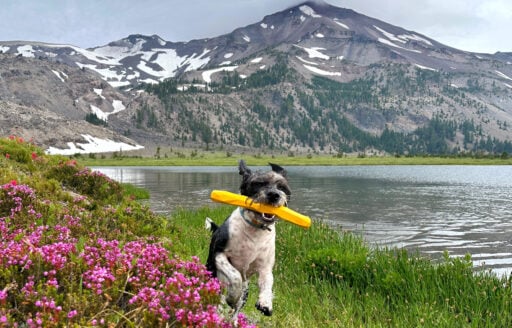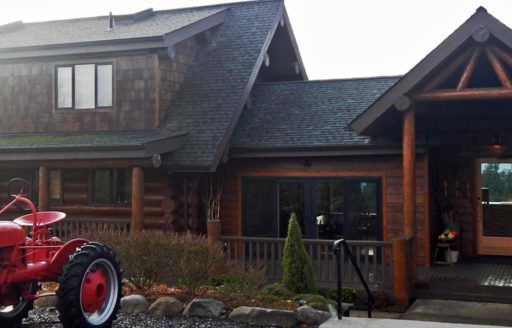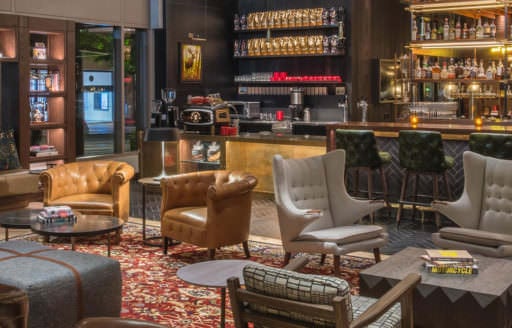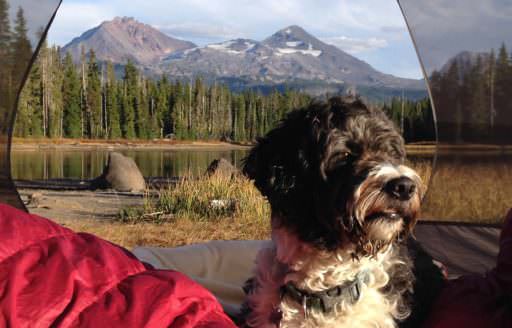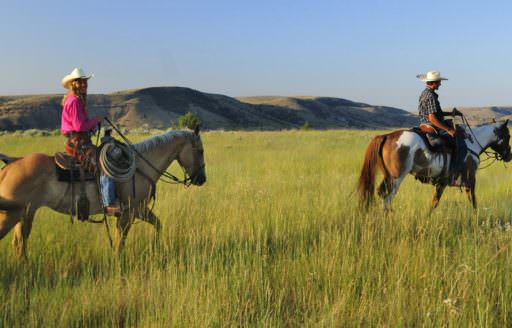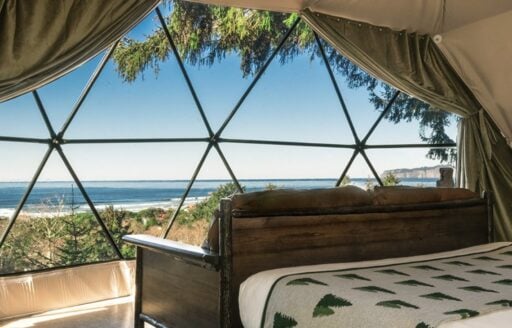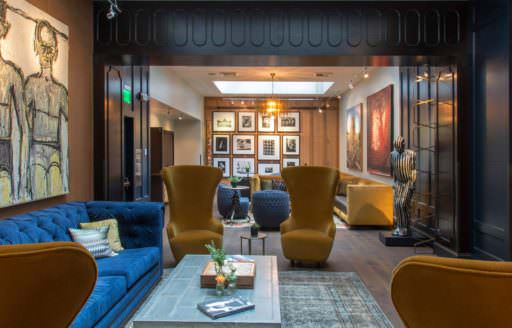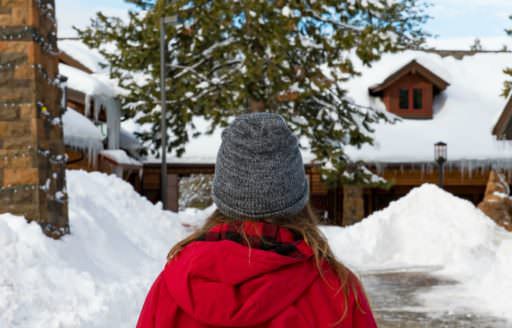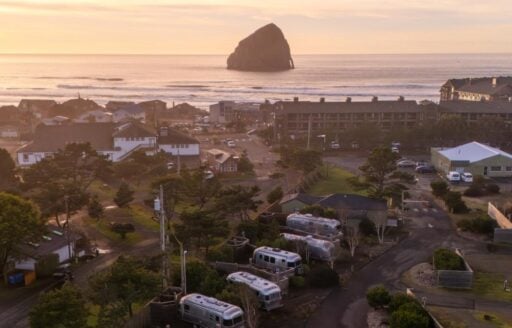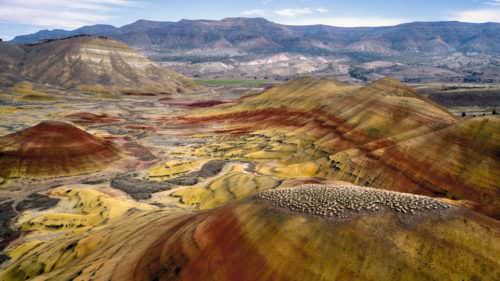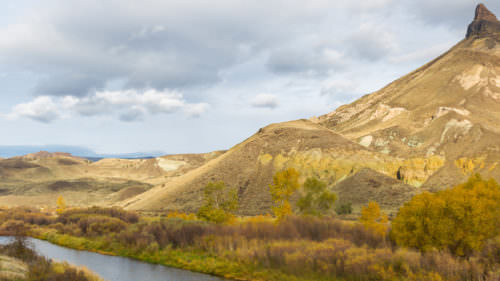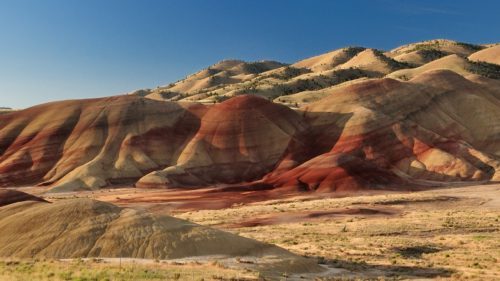There was the time bluegrass musicians came to teach locals how to harmonize for that high and lonesome sound, a job they did so well that they all sang a ditty for the town. Artists like painter Patricia Baehr-Ross have offered lessons on oil and pastels. There are open-mic nights and soap-making classes. You can learn about photography or how to embroider. One day last summer, a professional chef came to town with his team to make an Ethiopian meal that could feed 80 people, for free, a gathering that also included a coffee ceremony, dances and talks.
Then there was that time the Austrian classical musician Daniel Adam Maltz came out of his way to perform in Spray on a piano he’d lugged all the way from Vienna. All of this goes down in a town with no stoplights or even a hardware store.
Never heard of Spray, a remote farming community more than 200 miles southeast of Portland? You will. That’s because this town of 130 people punches far above its weight when it comes to promoting the arts, and to experience it, you just need to head to the Spray General Store, which isn’t a store at all. In the fall you’ll find music events and art workshops worthy of a road trip. To learn more, visit the store’s site.
“This little town is very welcoming,” says Joni Kabana, a local photographer who is the owner of and creative force behind the General Store’s transformation into a community cultural hub. Some audiences may have only ten people, but that’s not the point, she says.
“We come together as humans.”
Here’s what arts and music fans should see and do when they’re in the area.
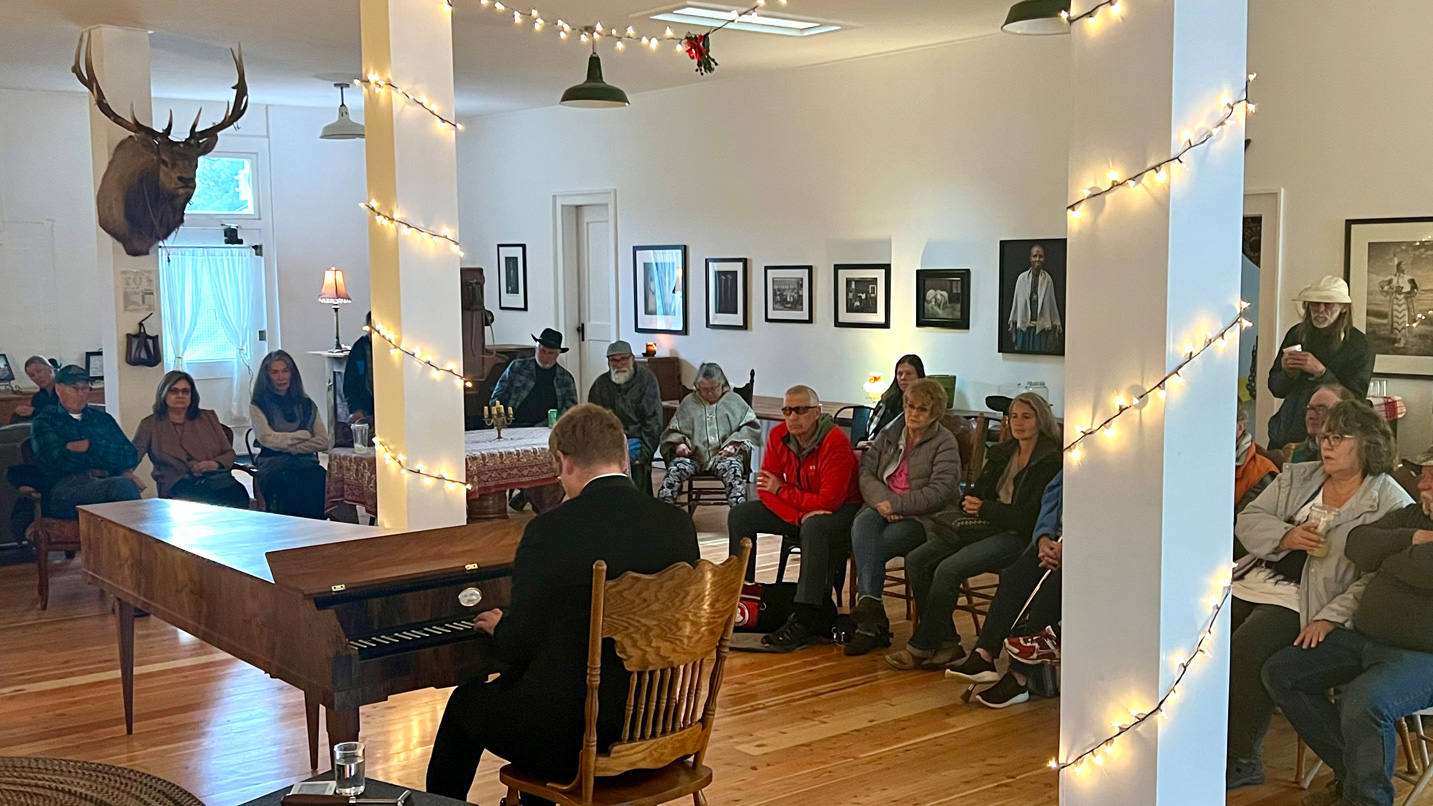
The Mainstay of Spray
The first post office arrived here in 1900. Today the town sits close to the John Day Fossil Beds National Monument, about 60 miles away It serves as a jumping-off point for a lovely 15-mile day float along the bass- and catfish-rich waters of the John Day River to a take-out at Donnelly Service Creek Campground to the west. Anglers love to fish on the 28-acre Bull Prairie Lake, where you’ll also find 30 campsites that can also accommodate RVs. The biggest attraction happens over Memorial Day Weekend, when some 10,000 people come to Spray for a three-day rodeo, a time when you can run a half-marathon and mingle with riders and locals at a “Buckaroo Breakfast” held inside the school.
Art and culture attractions are there year-round, though it’s best to call ahead to make sure someone’s around. The Spray Pioneer Museum goes through the area’s history, with its Native American artifacts and pictures of early settlers, all of which is housed inside a Baptist Church first built in 1912. The Dusty Books bookstore bills itself as “very small,” with “used books, used art and used rocks,” as well as “free dust” with every purchase.
Through much of it all, though, the General Store has served as a mainstay in Spray since at least 1930, when it was an actual general store, though Kabana is certain it’s been around longer than that based on letters she’s found that mention it. An original “Grocery Open” sign out front today still throws some visitors off since it hasn’t sold foodstuffs in years. (For that you need to go to the Lone Elk Marketplace just up the street, a convenience store with limited goods and a small restaurant in the back.) In recent years, the General Store has become something much more.
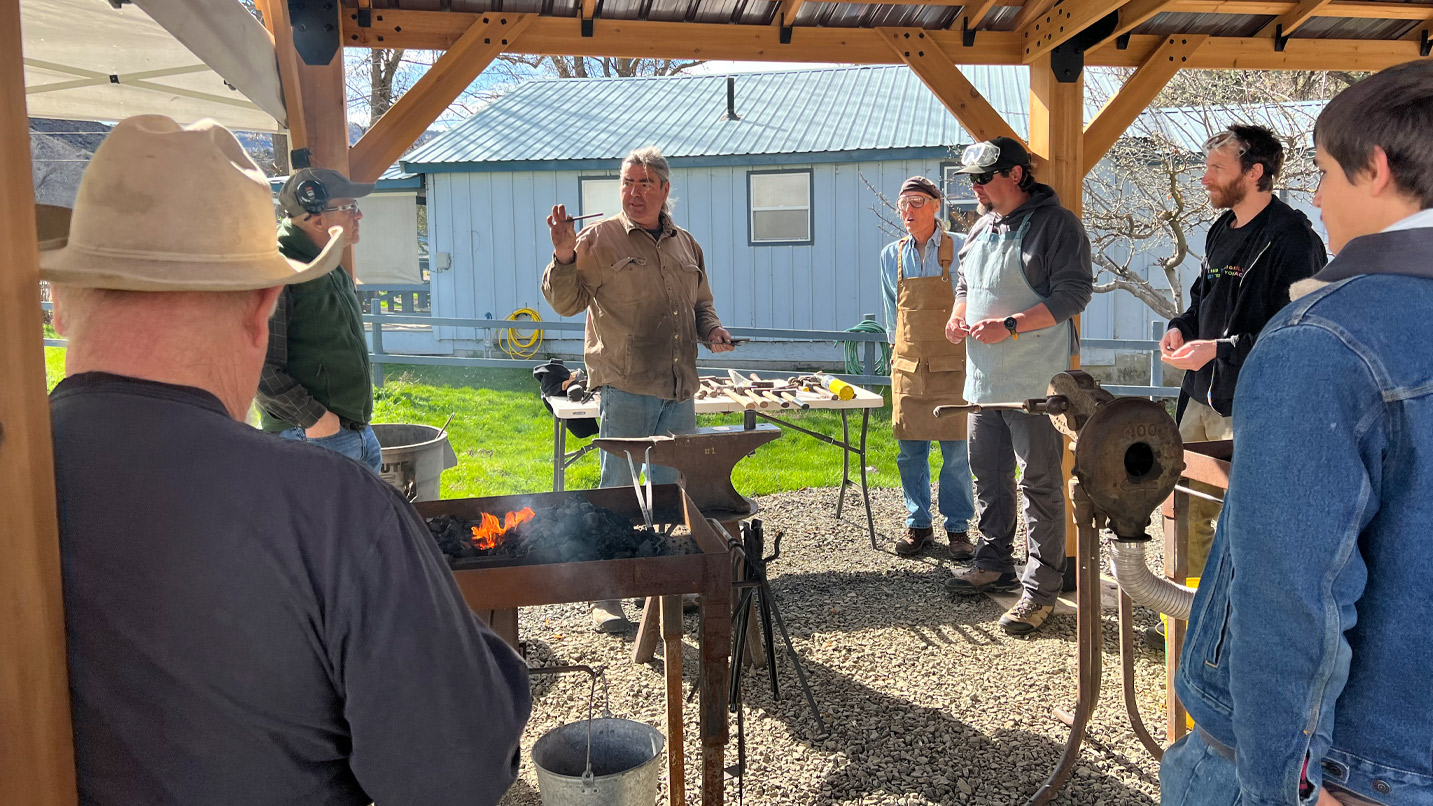
Mountains and Rivers Make a Great Place to Create
Surrounded by mountains and sliced by a river, Spray has a relaxed and quiet feel. It’s rural, the kind of place where you can tell if there’s a visitor in town by the unfamiliar car parked on the street. That level of quietness and closeness to nature makes for a great place to create.
On a sunny midweek morning, Kabana met me in front of the store and showed me around. She is gentle and kind with a mind that buzzes with ideas. The store is tidy and white with big windows and dozens of hand-painted signs that say “Welcome” in Thai, Portuguese and other languages, created by the Spray school’s sizable international student population. Outside there’s a gazebo and, soon, fire pits, all paid for by a Cycle Oregon grant Kabana received to improve the space. She throws spontaneous potlucks out here, as well as a kids’ film festival once.
“I always say I’m borrowing this building,” says Kabana, who bought the building in 2021. “It’s a community space.”
We sit at an antique table she found in Condon, 56 miles northwest, while two cats frolic about. The place is airy and practical with new hardwood floors, couches, tables, a wood stove and plenty of room to, say, stand around with some folks and try the banjo.
“I had an open-mic night one night, and this woman comes in, asks for a broom, and then plays a cement bag with it,” she says. “It was incredible. I thought, ‘This place is music.”
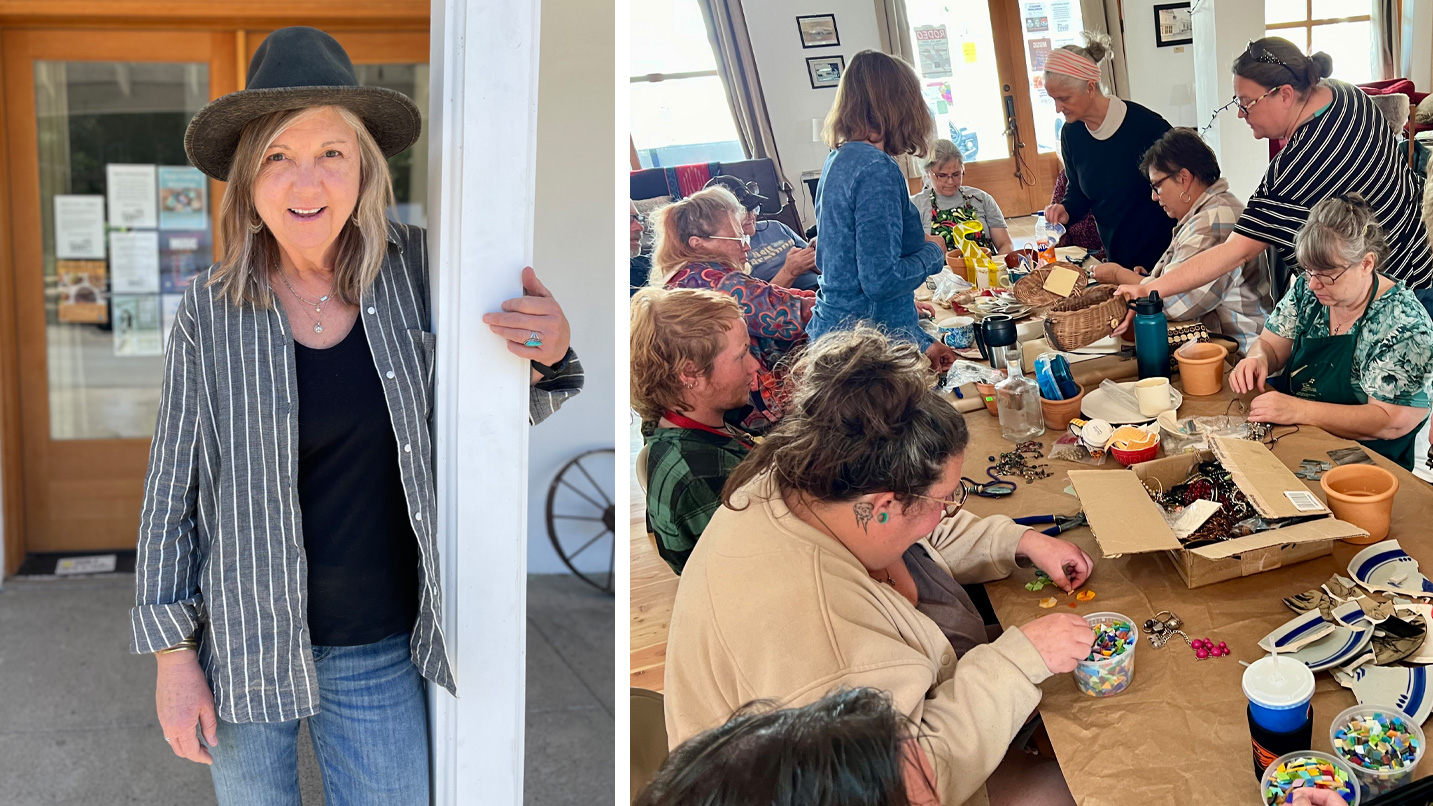
From Corporate Life to Africa and Art
Kabana came to own the store after decades of working a corporate insurance job in Portland. Eventually, she quit and became the photographer she always wanted to be, doing mostly commercial work before teaming up with doctors to document health conditions in Africa. Thirteen years ago, she moved to Spray into what she calls a “city-girl cabin” on the outskirts of town. She’d been through here before to attend the rodeo and always loved the wide-open skies, the hardscrabble hills and the searing wildness of the desert that reminded her of Ethiopia, a place she loves dearly. Photographs from some of the 28 trips she’s made there hang on the walls.
“There are kilns in the back and a blacksmith over there,” Kabana says, motioning toward the rear of the building. “The plan’s to project movies on the outside walls, too.”
Since she bought it, grants have made a lot of the store’s transformation possible, including one for $50,000 that let Kabana convert the space from a store full of coolers and shelves into a welcoming place with great acoustics for concerts and plenty of room for workshops. Bands want to use the space to record albums, she says. Other times they just come to play. In between you can sign up for photography workshops, woodworking lessons and even wellness sessions to learn about acupuncture and massage.
Before rolling out of Spray, Kabana tells me how the store and the artists who come through have helped expose this rural part of Oregon to new ideas and opportunities.
“It’s been a delightful human experiment,” she says. “Conservative, liberal, urban, rural — it works.”
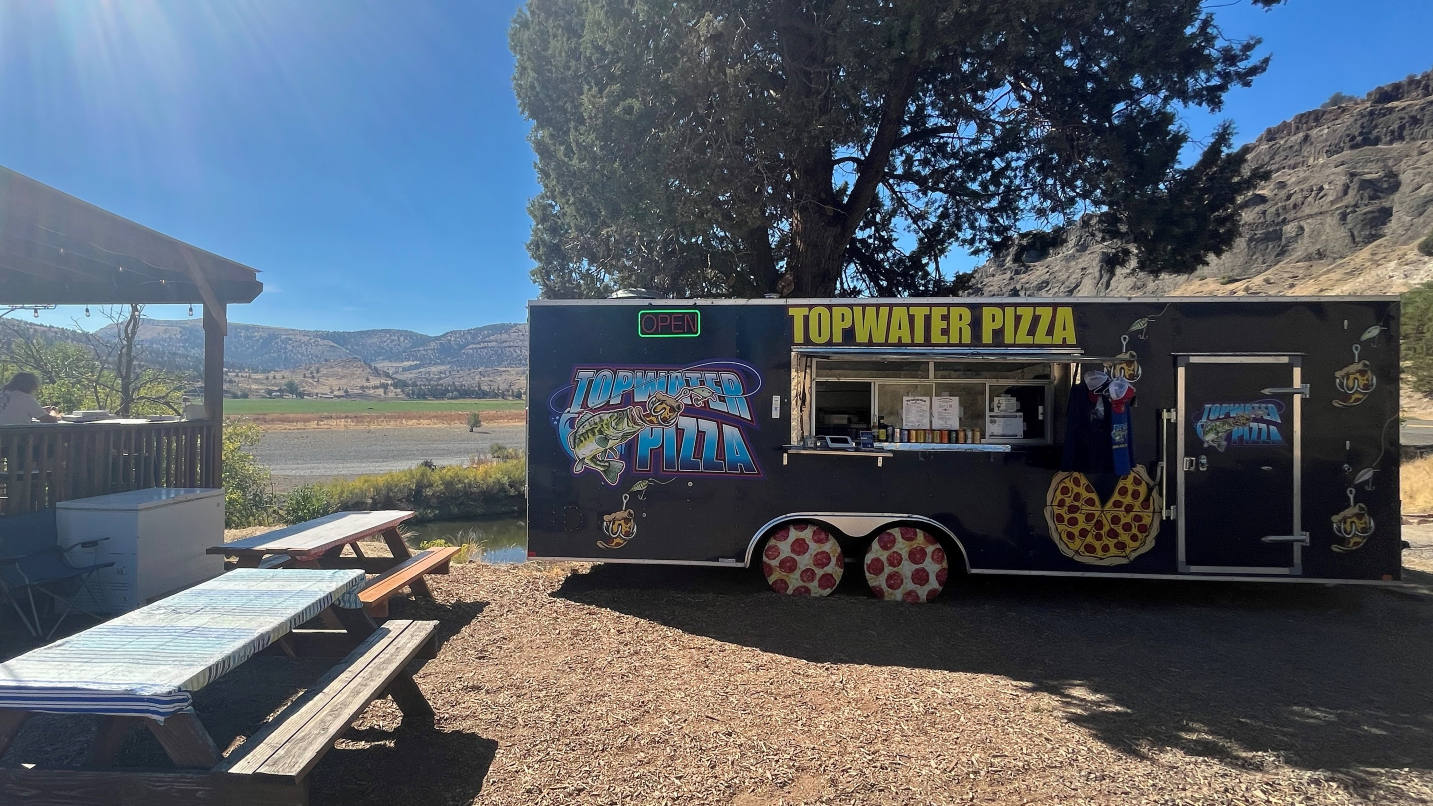
If you go:
To make a weekend of your trip to Spray, there are seven hotel rooms (plus a three-bedroom house) at the River Bend Motel. Otherwise you’re camping at the Old Mill or the Riverfront Park, where the static hiss of the John Day sluicing will sing you to sleep. I found a site about 15 miles east, near the orchards of Kimberly on the North Fork of the John Day, where I watched stars scroll overhead while listening to fish flop in the current. If you’re hungry, stop by Topwater Pizza. This small but mighty food truck just outside the main part of town serves up whole pies of cheesy goodness, with a small seating area overlooking a calm current of the John Day River.

